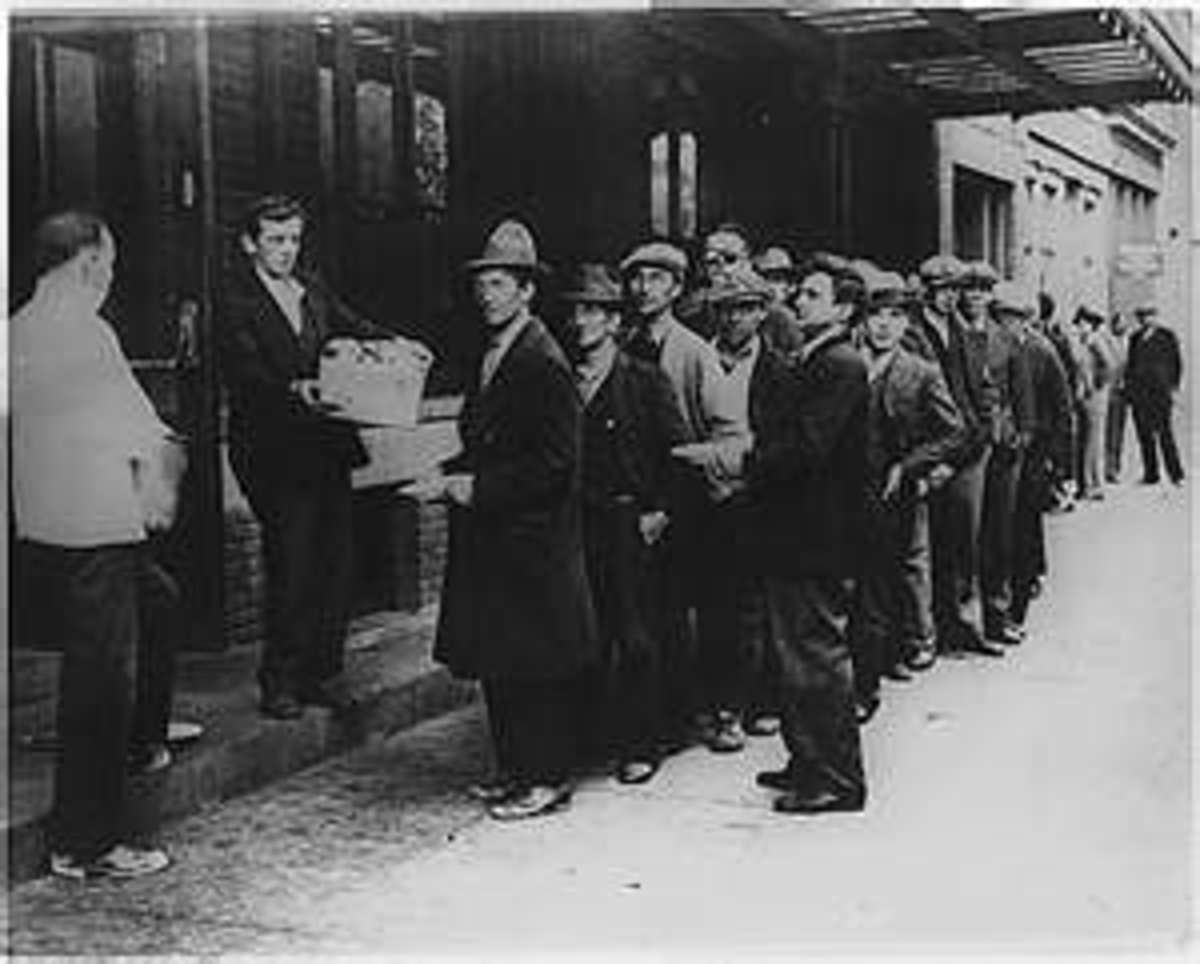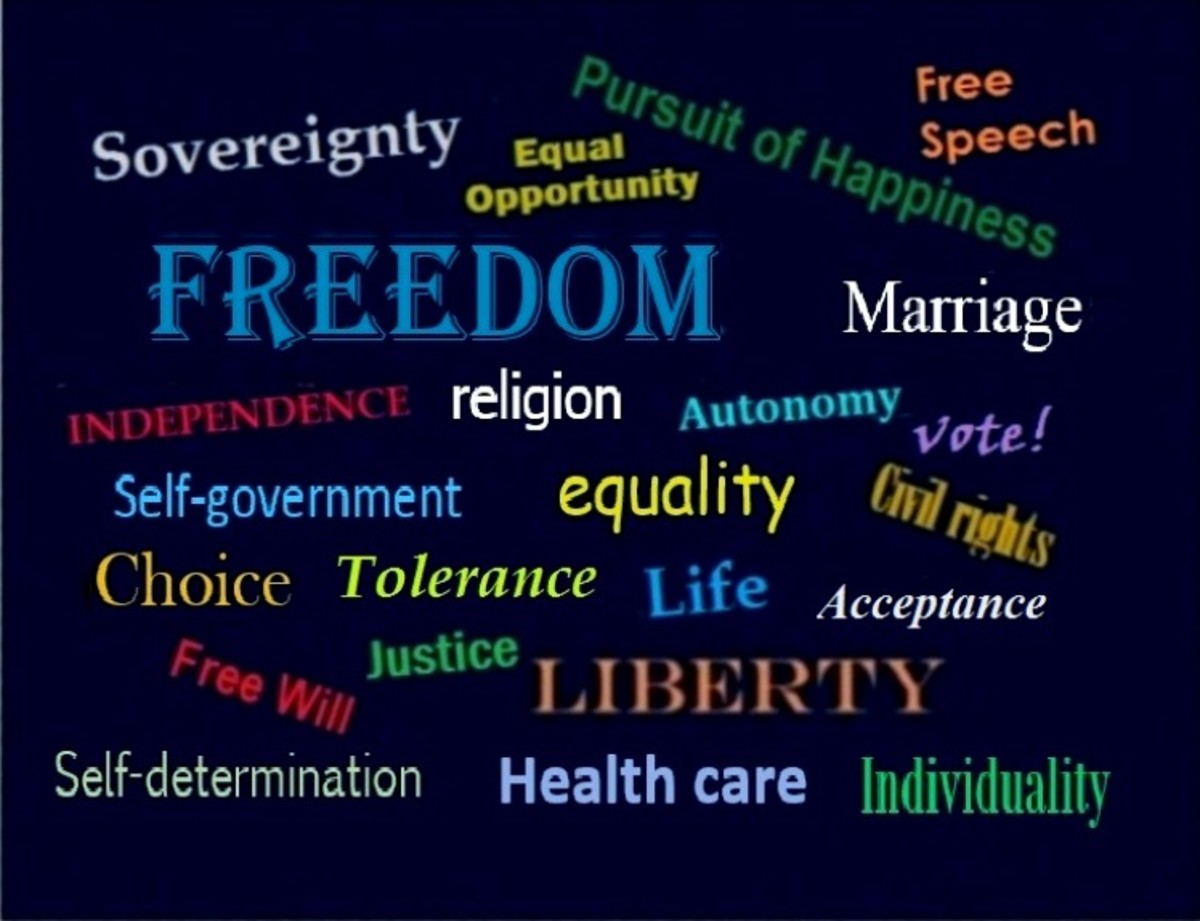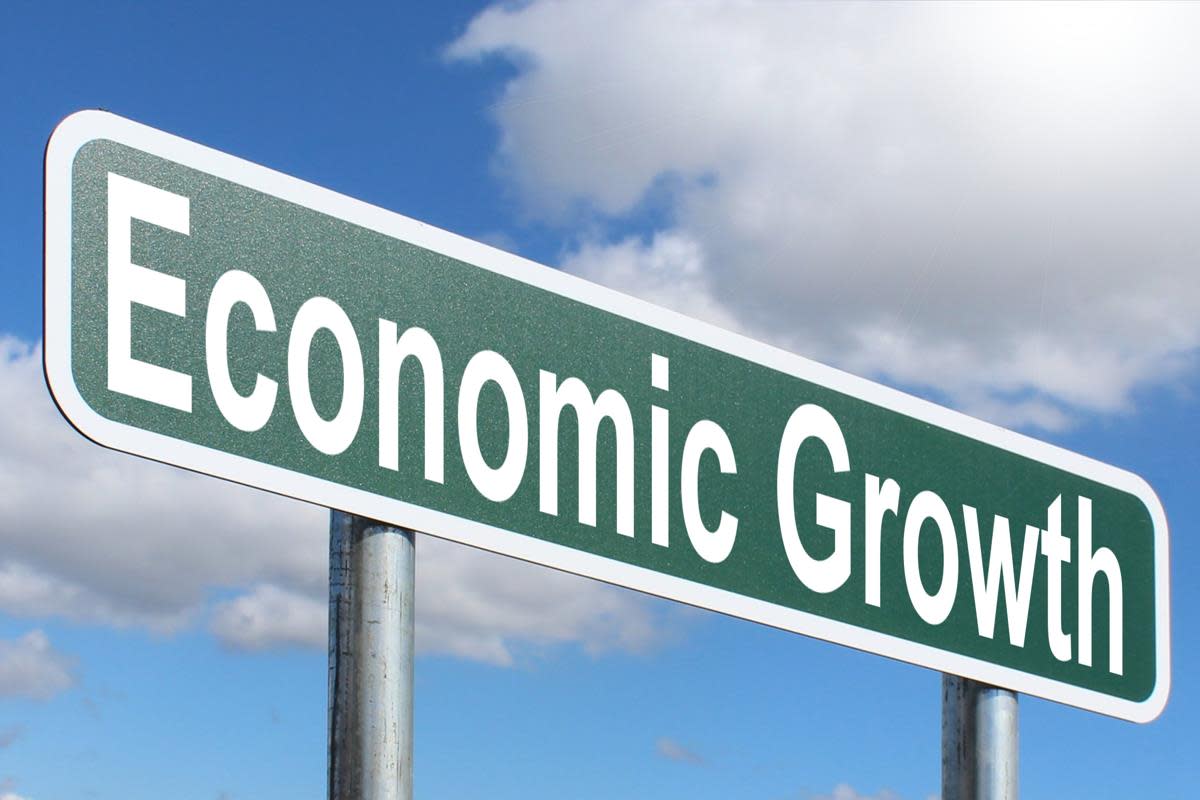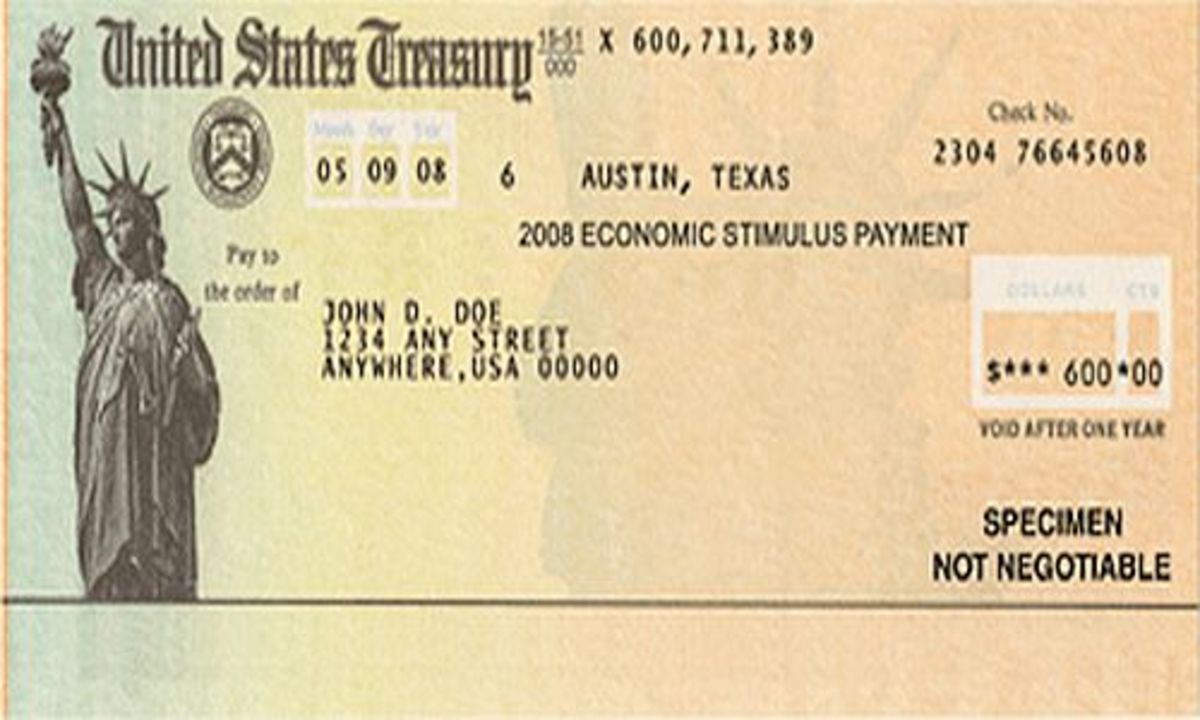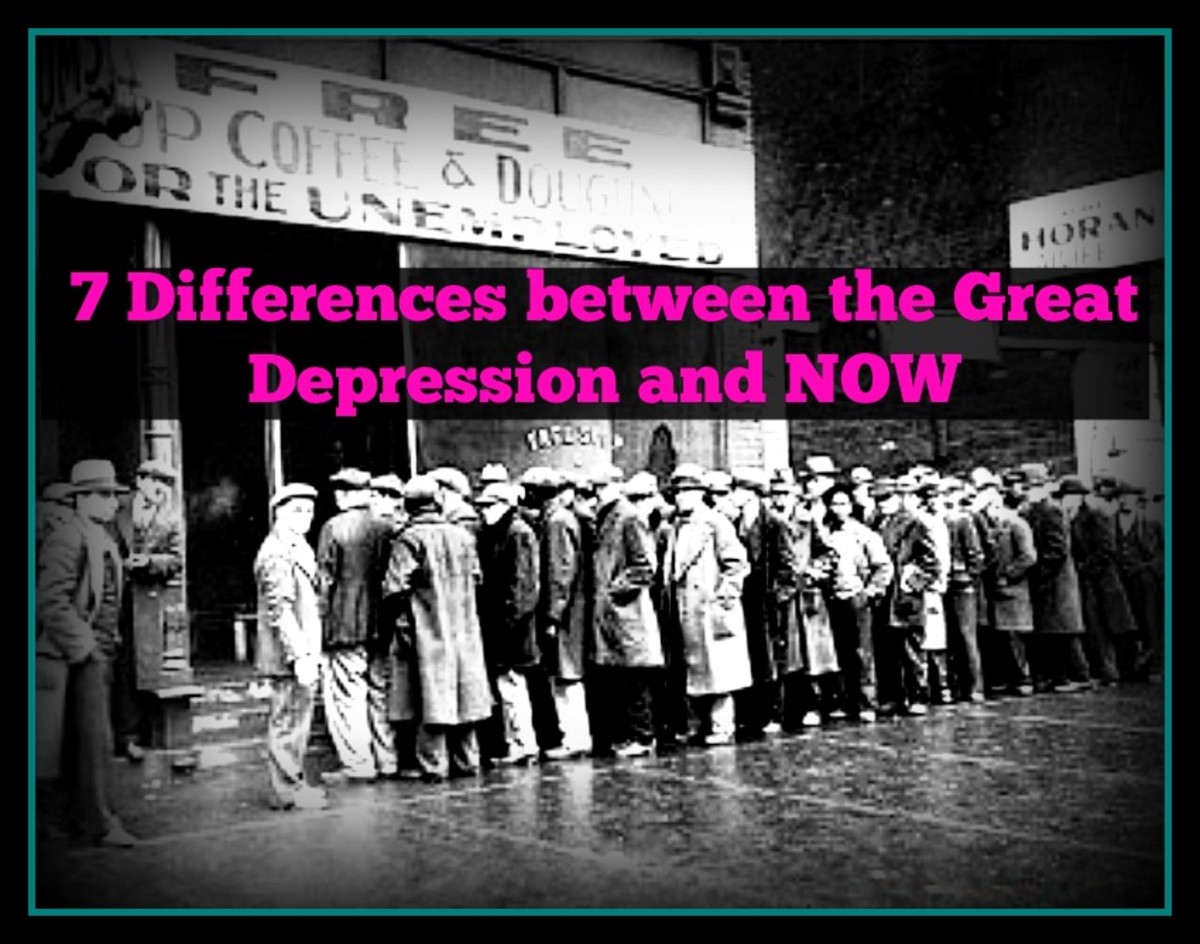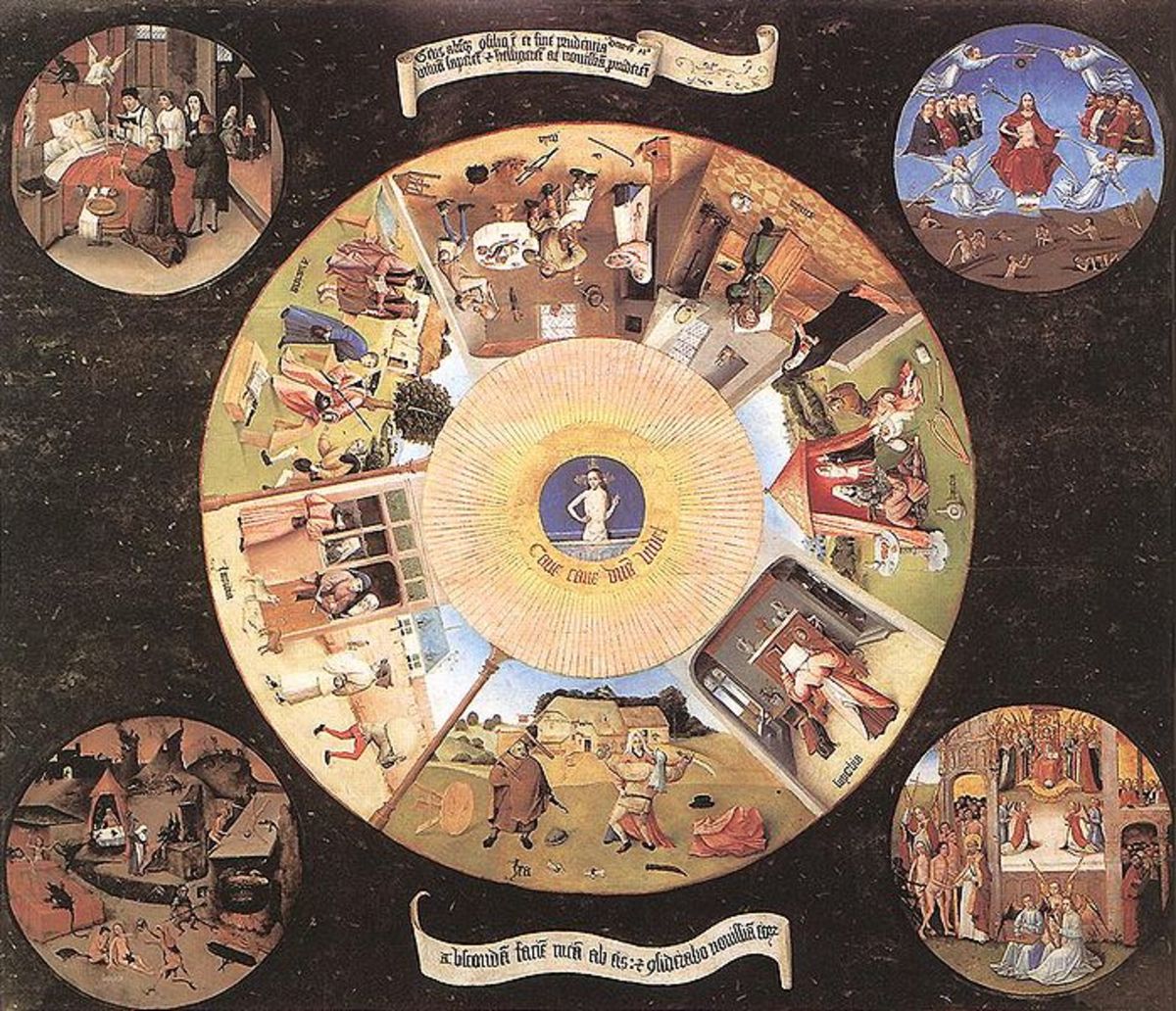Show Me the Money

It's Not About What's Fair, It's About Survival.
I heard a shocking statistic a few months ago. Apparently 20% of Americans own 85% of the nations' wealth. Don't take my word for it. Research it, you'll find it to be true (although I have seen some numbers that bring it down to 75% of the wealth depending on how you do the math.) As I sat down to write this I tried to do some research on just how much money we're talking about but apparently that's very complex and I'm not of a mind to do that much work at the moment but I can give you an idea of what those percentages mean. If the entire country's wealth were $10.00, then, 20% of Americans are splitting up $8.50, and the other 80% of Americans are splitting up $1.50.
The population of the United States is an easier number to get a hold of. There are 307,000,000 of us. That means that 61,400,000 have 85% of the wealth and 245,600,000 of us are splitting up the rest.
What does this mean? Well, mostly what it means is that those of us who work for a living are getting a very small percentage of the profits that our work helps to create. That is not, generally speaking, a new thing. The history of economics has always shown the majority of profits going to a few at the top. In some ways, that's only fair. Entrepreneurs for the most part are taking large personal risks by throwing everything that they own into some enterprise and, if that risk pays off, they deserve the lion's share of the reward. The rest of us are mostly only along for the ride and only have a job because the boss put himself on the line. Much larger businesses have made huge investments in infrastructures. Look at phone companies for example that have had to build or buy cell phone towers all over the continent, or string wires between nearly every home in the country or pay construction costs to build stores on thousands of street corners. The owners and builders of that entire infrastructure, after paying themselves back for the money they put in, can reasonably expect to take more out than an employee whose only concerns are what happens to him/her for eight hours a day.
Still, the numbers above don't look like the numbers for most of America's economic history, they look like the numbers of third world dictatorships or medieval feudalist economies. There is every reason to believe that we are evolving out of a democracy based system of government into an oligarchy ruled by the ultra rich. The fact is, even though a case can be made for the people who take the risks getting the bulk of the profits, the question arises, how much do they need and how much do we, their workers, deserve? If you changed the numbers above to 20% of the people having 50% of the wealth and the other 80% of us splitting up the other fifty and stick with our $10.00 number, that would be 61,400,000 people splitting up five dollars and 245,600,00 splitting up the other five. The top 20% will still be much richer than all of the rest of us, but, we wouldn't have many of our current economic problems because the average guy on the street would have enough money to save, pay taxes and put money back into the economy through spending. It would also make our middle class the richest middle class the world has ever seen which has been true in the past, but has changed as Europeans begin to have more spending power than we do. Further, if the general public had more money, they would need and hopefully want less services from the government. (I just used the 50/50 number above for ease of demonstrating the math, 60/40 or 70/30 would still be a lot better than the way things are now.)
So how do we get the rich to give us raises? I don't have the answer to that one.
It is a very popular idea that the rich should be taxed much more heavily. Perhaps they should be. If we really need new roads, a new electrical grid, an army capable of policing the world and all the other stuff that we can't do as individuals but need to do collectively, and if the rich need those things to stay rich and get richer, than, since they have more than the rest of us, and will benefit from those things more than the rest of us, than an argument can be made that they should kick in more. However, studies have shown conclusively that giving more of the rich's money to the government doesn't put one single dime more into the pockets of the rest of us in the lower 80%.
The progressive labor movements of the robber baron days, some of whose members literally died to get us the five day, forty hour work week and modern safety standards, would have argued that the only way to change this is for workers to stand together in a united front to demand more. After all, they can't make that money without us. The problem of course is that the modern labor unions are as corrupt and greedy as the corporations and are often very unreasonable in their demands, further, Americans have lost a sense of commonality and developed an "every man for himself" attitude. I'm unemployed at the moment and if some big company in my community decided to try and break their union and offered to pay people a fraction of what the union guys are making, and that turns out to be more than I'm making on unemployment (or more likely more than I've ever made) I would like to think that I would honor the resulting picket line but, depending on how badly I need the money, I can't say for sure that I wouldn't cross it. It's easy for the rich to get us to lower our prices because there are too many of us and we're willing to underbid each other. On top of that we're competing with Asian and Latin American labor forces that are willing to work for much less than we are. (There are more numbers out there that suggest that the 80/20 split of wealth ownership is also the number for the entire world. However, given those numbers, the entire American public is amongst the 20% of the world's population that controls 85% of the world's wealth. So, if you don't feel rich, think for a moment about the 80% of people in the world who have a lot less than you do.)
When I mentioned these numbers to one friend of mine he questioned "Don't they understand that we know where they live?" Of course, he was kidding, but, the fact is, in the middle ages, there were more than a few feudal lords who found themselves confronted by peasants with pitchforks and firebrands ready to take their share of their labor's profits by force. I don't think that ever worked out well for those peasants although the willingness to take violent action if necessary did end up being a factor in many reforms in western history. A good medieval overlord knew when he had to give a little. I don't know how well that would work today. Rather than having a basement full of gold that they've got to move with them when they flee, most of our rich just have digits in computer bank accounts that they can move anywhere in the world from their smart phones. All they need to do to get away from a peasant revolt is get safely to the airport.
The only way I see to close this gap is to do something like, having the government legally mandate a living wage. All that really needs to be done in order to do that is to dramatically raise the minimum wage. Of course, that would make moving jobs to Asia and Latin America that much more appealing for large businesses and make it that much harder for small businesses to get started.
So, there's the problem. I don't have a fix, but, if you do, post it below. Maybe there are some ideas out there that need to be thought about.

